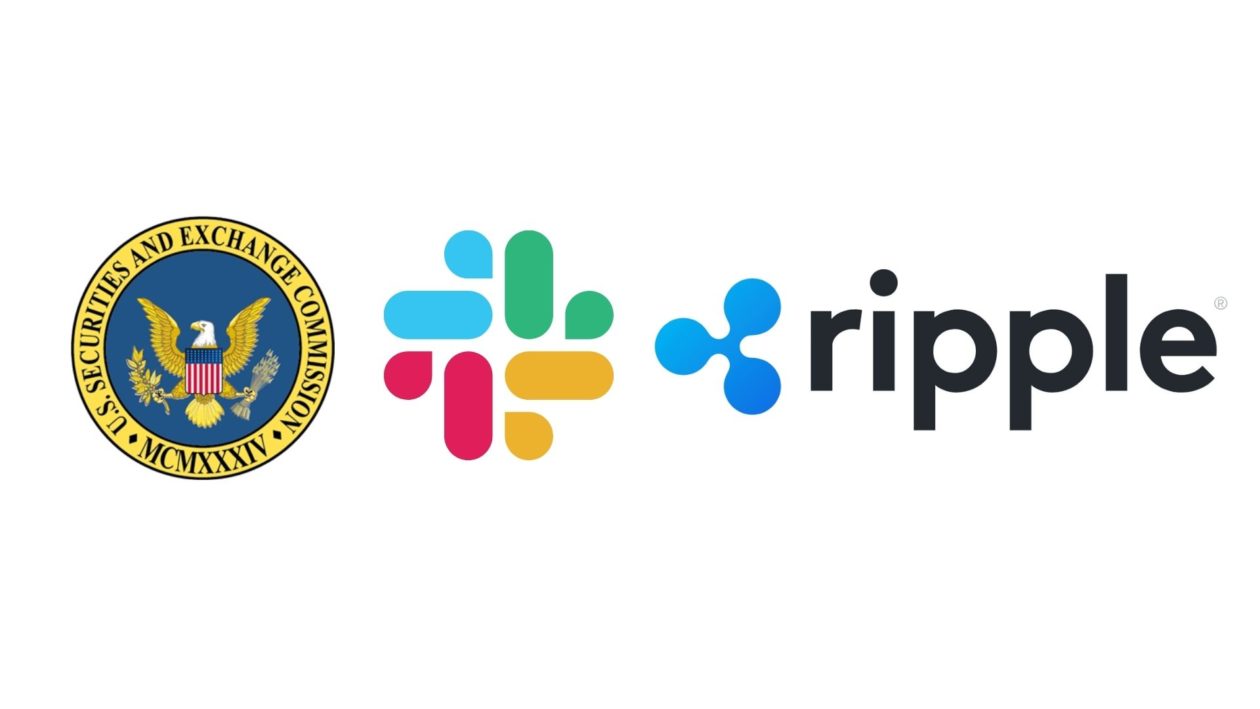Underscoring the growing importance of instant-messaging and online chat rooms in the workplace, the U.S. Securities and Exchange Commission has gone back to court in its lawsuit against Ripple Labs — this time, to demand access to more communications between Ripple employees on Slack, a popular chat and messaging application used by businesses.
In a letter dated Aug. 9 to U.S. Magistrate Judge Sarah Netburn, SEC attorney Jorge Tenreiro complained that a “massive quantity” of Slack data from Ripple was missing from discovery and that the SEC was entitled to see those messages.
According to the SEC, Ripple failed to properly collect and review the Slack messages of 33 people whose workplace communications both parties previously had agreed to search through and share with the other. The messages include direct messages, multi-party instant messages and chat messages posted on public channels open to all Ripple employees — information the SEC says could be vitally important for the agency to build a complete and accurate record for summary judgment and trial.
“Ripple agreed at the outset of discovery to search for and produce responsive Slack data but now, in the waning days of fact discovery, suddenly refuses to do so on the basis of Ripple’s mistakes in gathering that data,” Tenreiro wrote. “Yet the relatively few Slack messages Ripple has produced have yielded critically important information — not contained in emails or other documents — that the SEC has repeatedly used in depositions to refresh Ripple’s employees’ dwindling recollections.”
“Had Ripple properly searched and produced all responsive Slack messages, the SEC would have almost certainly been able to refresh the recollection of other deponents,” Tenreiro added. Ripple’s data error and refusal to produce the documents were “highly prejudicial” to the SEC, which had already deposed 11 Ripple witnesses using incomplete records of their communications, according to Tenreiro.
The wrangling over Slack messages is the latest battle between the SEC and Ripple as their litigation slogs through its discovery phase — the process of exchanging information, taking testimony and trying to fend off access by the other side to gain legal advantages.
Last December, the SEC filed a lawsuit against Ripple alleging that the San Francisco-based payment company’s sale of XRP was an unregistered securities offering worth over US$1.38 billion. In the same lawsuit, the SEC also named Ripple’s CEO Brad Garlinghouse and executive chairman Chris Larsen as co-defendants for allegedly aiding and abetting Ripple’s violations.
See related article: Court denies SEC request for info on Ripple’s recent XRP transactions
Why the Slack messages are important
Although Ripple had collected 82,000 Slack conversations, reviewed 7,054 of those and produced 1,468 of them, the missing data consisted of well over one million messages, comprising terabytes of data, Tenreiro wrote. “The Slack messages … are an information set whose size eclipses that of Ripple’s large email productions — corroborating testimony that Ripple employees communicated at least as often by Slack as by email.”
According to the SEC, the Slack messages produced show Ripple employees “discussing issues directly relevant to disputes at the heart of this case,” including “(a) discussions about Ripple’s desire to create speculative trading in XRP… (b) the effect of Ripple announcements and efforts on, and Ripple’s concerns as to, the price of XRP… (c) the relationship and central importance of XRP sales to Ripple’s overall busines… and (d) the regulatory status of XRP.”
See related article: Ripple expands XRP into NFTs amid escalating legal battles
Ripple: Slack data collection ‘burdensome and disproportionate’
According to email correspondence between the SEC and Ripple’s defense attorneys, Ripple already turned over private channel Slack messages for all of the custodians. But Ripple failed to disclose the direct messages, multi-party instant messages and its public channel messages concerning XRP. Ripple has argued that the data collection, review and production for all 33 custodians would be unduly burdensome and disproportionate to the needs of the case.
According to Ripple’s defense attorneys, the cost of re-collecting all of the Slack direct messages and multi-party instant messages for just five of its key employees — CEO Garlinghouse, chairman Larsen, former CFO Ron Will, former chief compliance officer Antoinette O’Gorman and former head of Xpring Ethan Beard, former head of Xpring, a Ripple initiative to invest in companies — was over US$70,000 and yielded nearly two terabytes of data. Re-collecting the Slack data for all 33 custodians was likely to cost at least US$460,000, excluding hosting costs.
In his letter, Tenreiro said the SEC had agreed to limit Ripple’s Slack search to 22 designated “document custodians” — the 14 Ripple employees deposed for the case plus eight individuals from Ripple’s original email list — to reduce the burden on Ripple. But Ripple only agreed to search the Slack messages of Garlinghouse and Larsen and the direct messages and multi-party instant messages of six others, resulting in the current discovery stalemate.
Federal law prohibited Slack from providing the SEC access to Ripple’s corporate Slack account without Ripple’s consent. The SEC had attempted to seek Ripple’s consent, but Ripple refused, according to Tenreiro.
“Ripple should not be permitted to reap a reward from its discovery mistakes and refuse, at the last minute, to search for the documents it long ago agreed to search,” Tenreiro wrote.
See related article: SEC: Commissioners’ statement not relevant to Ripple’s XRP lawsuit defense





